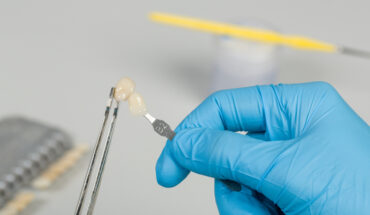One of the ideas included in the film is pain, which is why the director chose to devote this feeling directly to the profession he deals with every day. The dental clinics involve drama, anxiety, action and resolution that make this profession Nobel.
Dr. Painless Potter
Bob Hope starred in this 1948 comedy Western. Jane Russell was a female protagonist who managed the role of Karamis Jane. The script was inspired by the real dentist “Painless Parker” of the late 1800s, and Dr. Potter, who was “able to extract 50 cents of painfully rotten teeth,” was portrayed as an inexplicable, shy dentist recruited by Karamity Jane to discover arms smuggling operations in the Wild West.
Dr. Christian Zell
Marathon Man, of course, was one of the scariest horror films for dental phobias, and Laurence Olivier’s skillful portrayal of Nazi war criminals forced him to retire from dentistry stigmatized with certain expressions of restoration procedures. Dustin Hoffman was the lead actor in a graduate student who ran long distances for exercise. Szell was the three-word line that stole the program: “Is it safe? the American Film Institute considers it the 70th best date of all time.” The famous torture scene also resulted in Dr. Zell, saying, “Oh, don’t worry. I’m not going to get into that cavity. The nerves are already dying. Living, freshly cut nerves are infinitely sensitive.
The Dentist
In the early 1930s, W.C. Fields appeared in several short comedies, usually about 30 minutes long. The legendary comedian drew a pharmacist with one shorthand and a barber on another. Both roles were assigned names to characters. Dentists are known simply as “dentists” because they resume treating patients after a round of golf.
Dr. Olin Scribcullo
The bloodthirsty plants in the 1986 musical “The Little Shop of Terror” ate up the sadistic Dr. Scrivello, who did not mourn too much dental for. Steve Martin’s performance at the dental operator took six weeks to film as the test audience wanted Gore, originally pictured at his dental practice, to clean up a bit. Dr. Scrivello sang, “I get excited when I dig discusses / It’s great to be told I’m just a bad ad.
Dr. Walter “Painless Pole” Waldowski
The suicidal dentist in the 1970 Korean War military satire “M*A*S*H” was depressed over the suspected onset of helplessness. Otherwise, Dr. Waldowski was a popular physician in medical units, hosting poker parties during downtime. Actor John Shuck made his film debut with M*A*S*H” and intentionally appeared due to a noticeable bite. Shuck didn’t say much in the cast dominated by Donald Sutherland and Elliot Gould but confessed, “I had three girls engaged at home, so I wasn’t going to play around here.
Dr. Sheldon Colpet
Dr. Colpet’s role in the 1979 edition of “In-laws” is generally considered more classic than the 2003 version with Albert Brooks and Michael Douglas. The chemistry between Peter Falk and Alan Arkin (Columbia) led the film to be seen as one of the 50 best comedies ever made.
King Schulz
Quentin Tarantino’s “Django Unchained” in 2012 features Dr. Schulz, who left dentistry to become a bounty hunter. Dr. Schulz buys slave freedom (something good), but true to Tarantino’s style. The film quickly incorporates the vengeance violence sought by the protagonist. Christoph Waltz, who played Dr. Schulz, won the Academy Award for Best Performance for Best Supporting Actor.
It is considered that idealistic dentists seek to change the world.
Dr. Frank Sangster
Steve Martin’s portrayal of Dr. Sangster in 2001’s “Nova Cain” differs from Dr. Scrivello on top of Dr. Sangster’s not sadistic. However, it is classified into a pattern of prescription drug prescriptions to the patient. Despite his loss, Dr. Sangster represents a more serious view of dentists.
He may lose his soul. He could have lost his life. But I’ve always said that the worst thing people lose is their teeth,” he said, pulling out his teeth and saying, “Oddly enough, it didn’t hurt the way I thought. In fact, with all the teeth I pulled out, I felt a little better. It’s a little more free.




